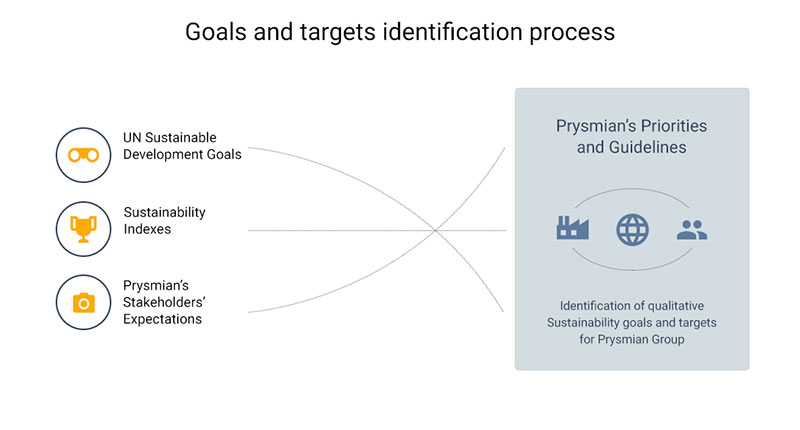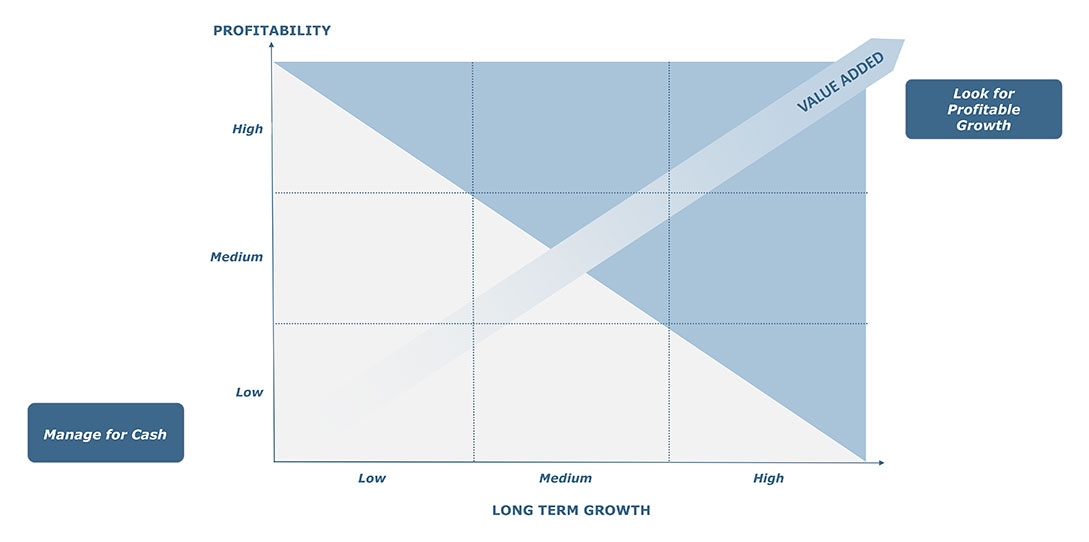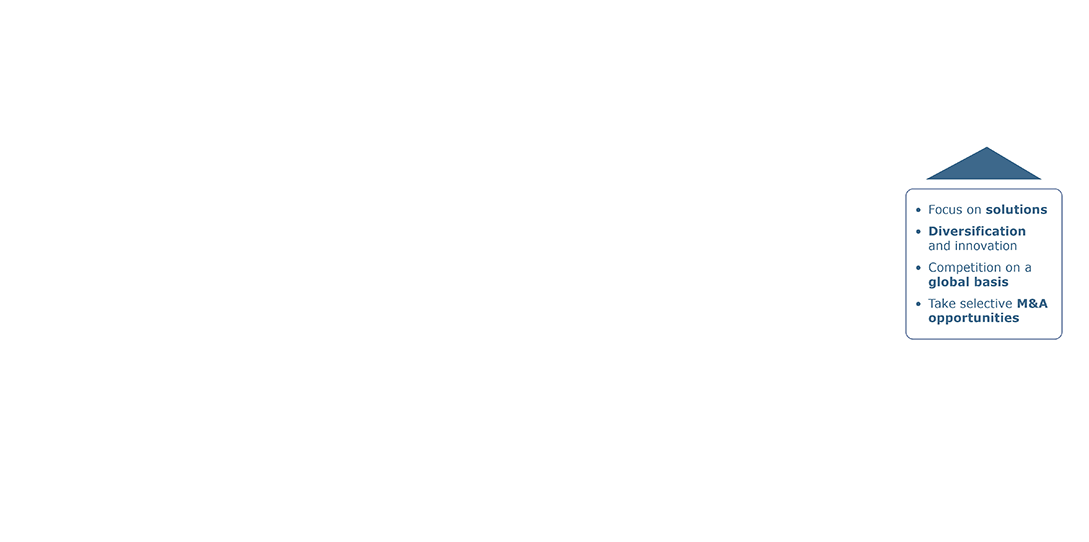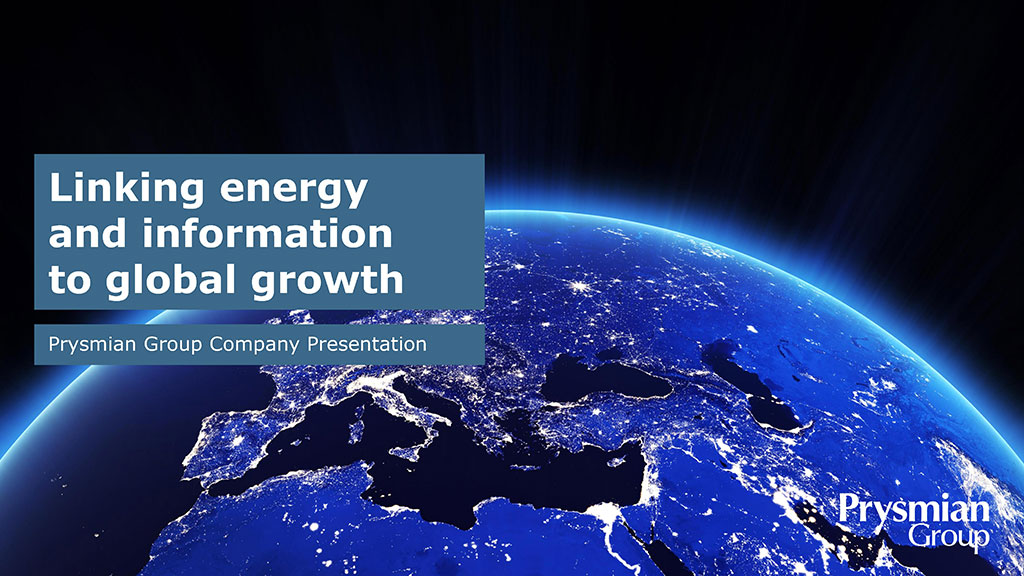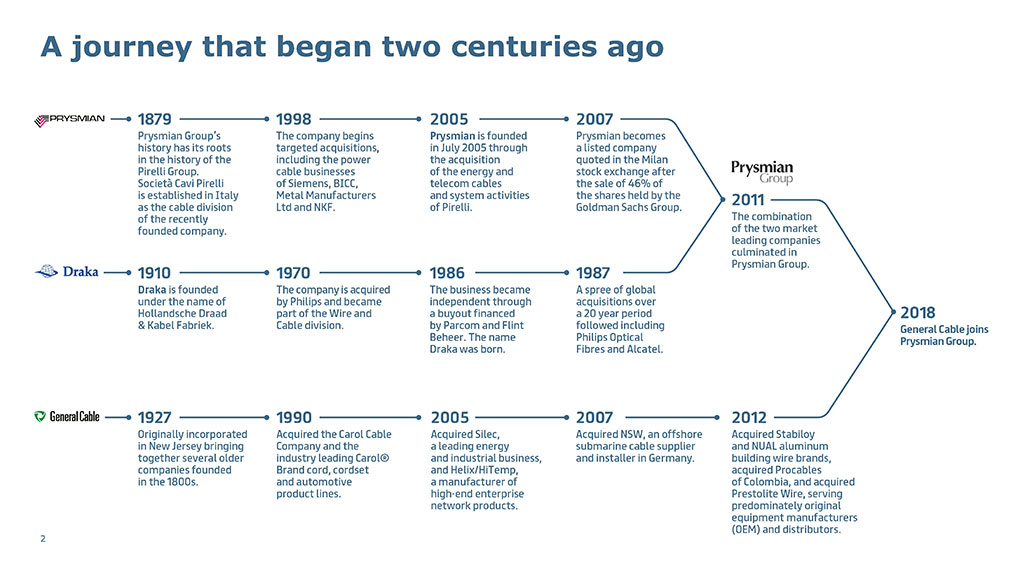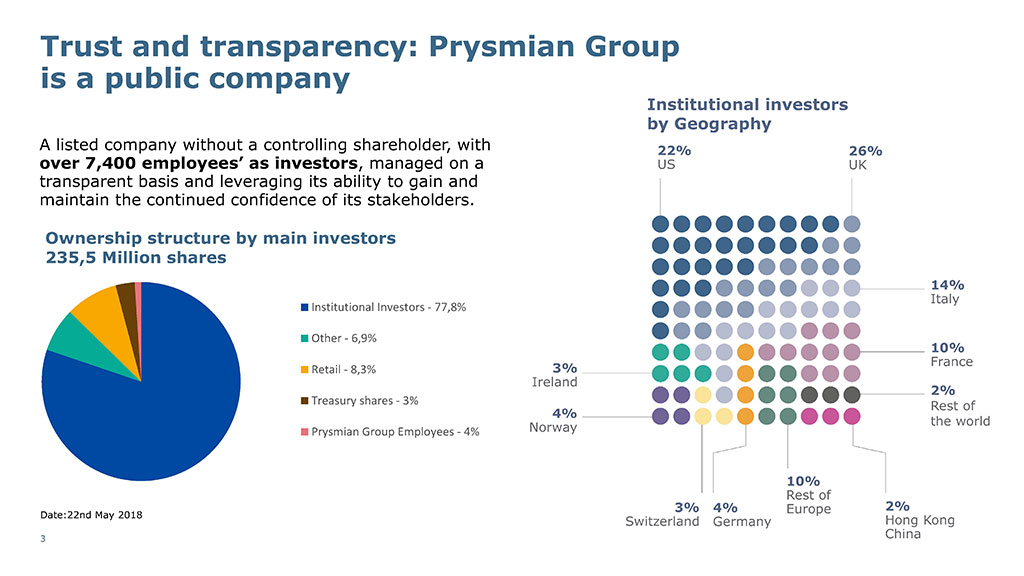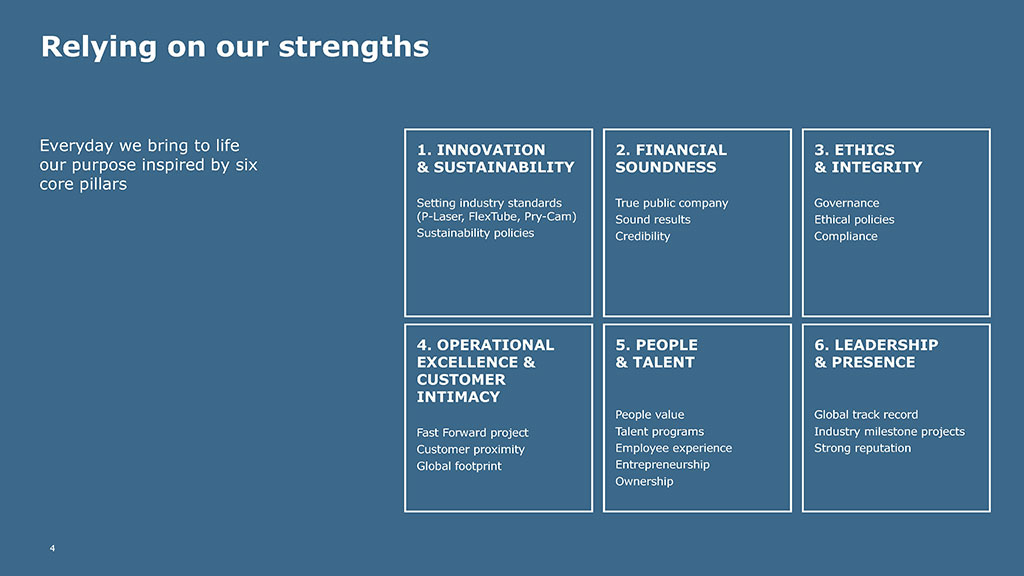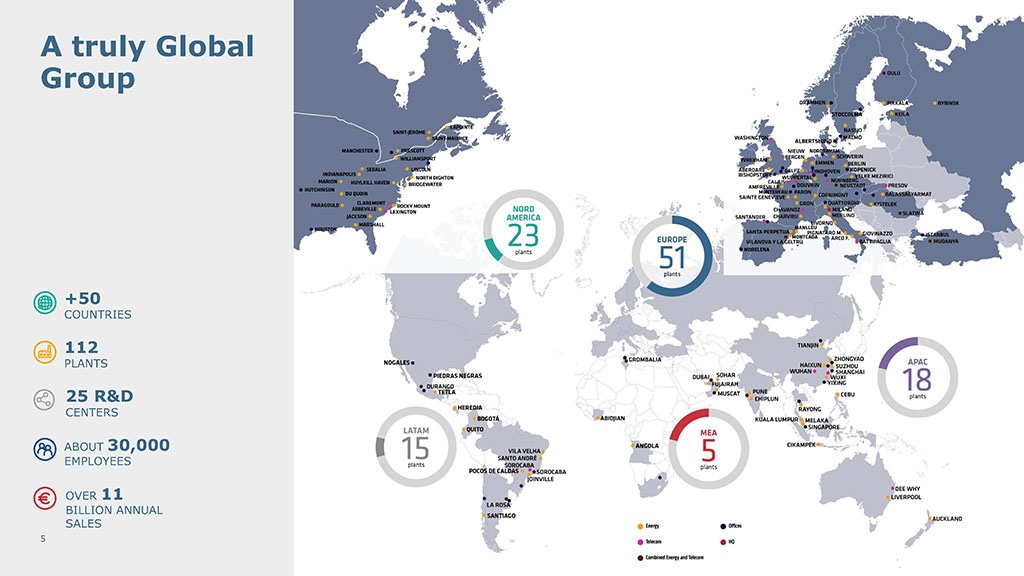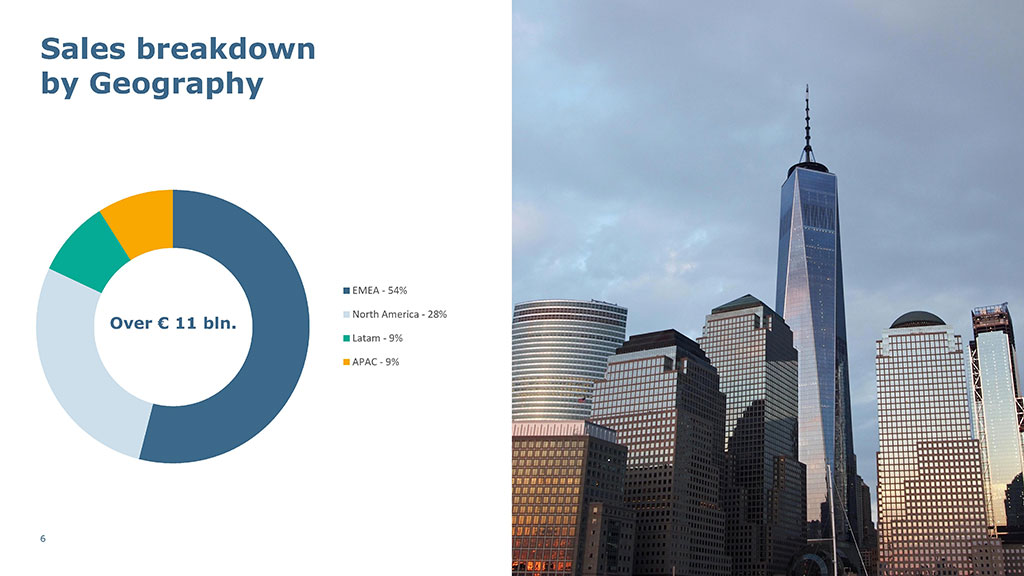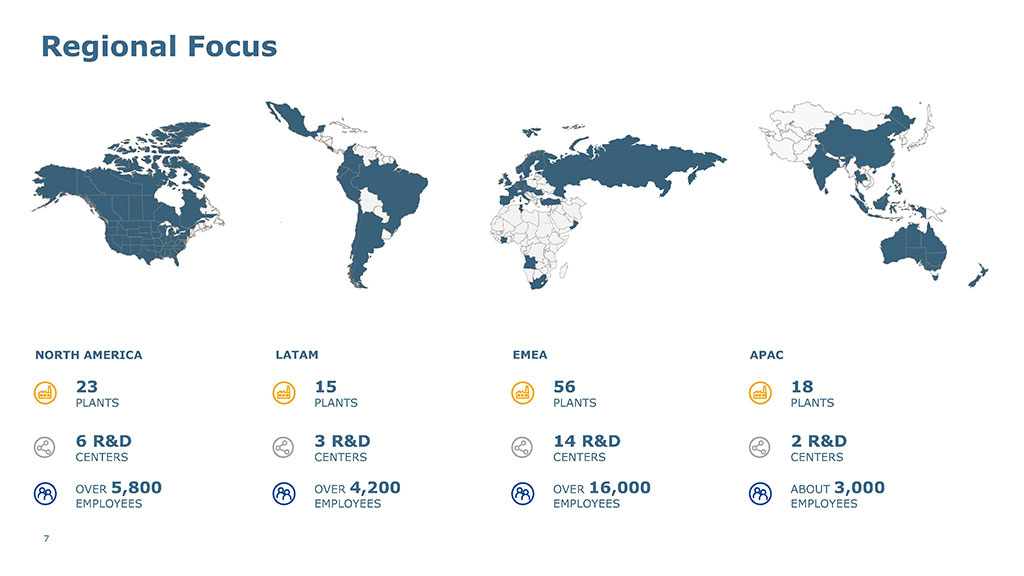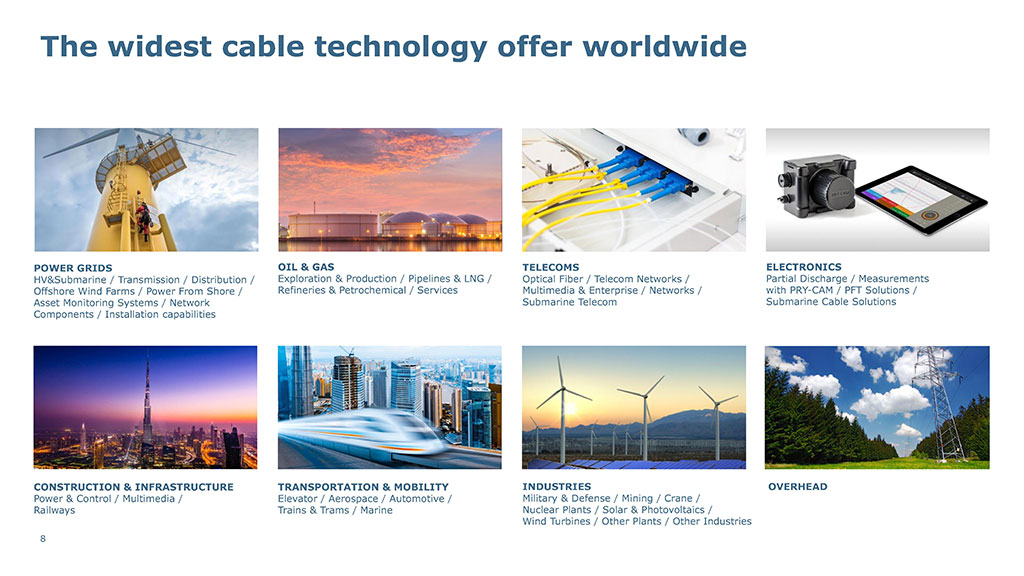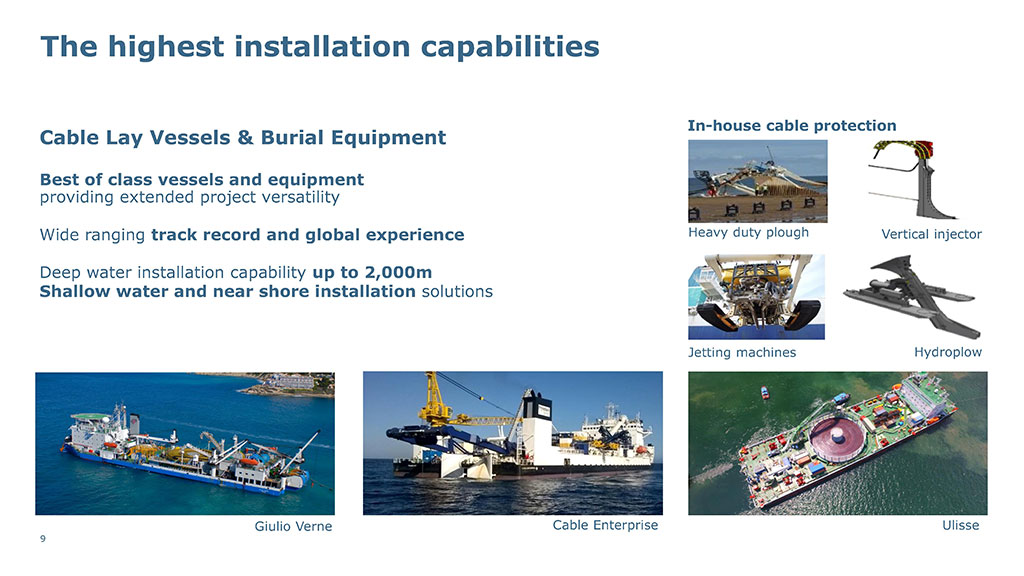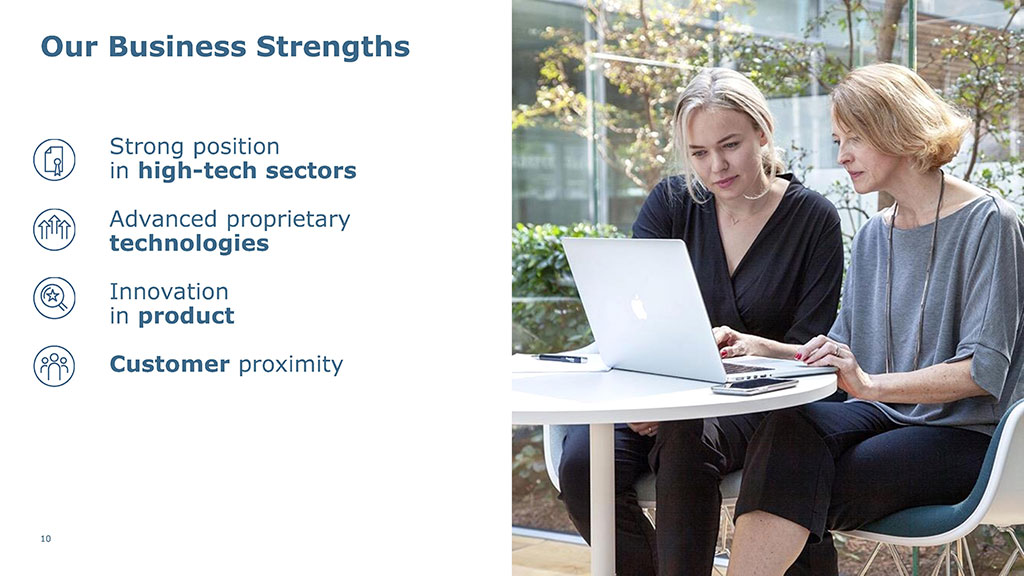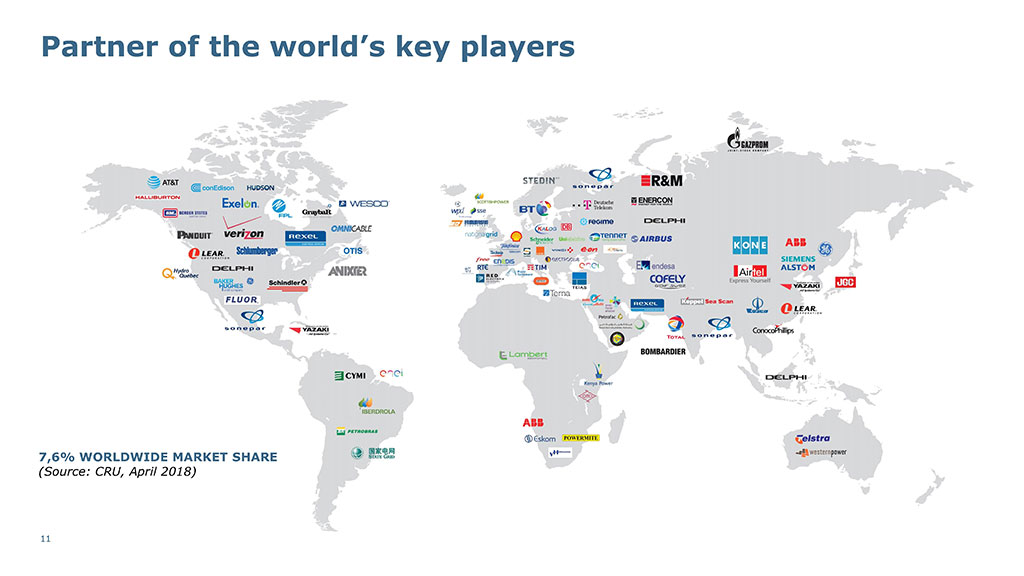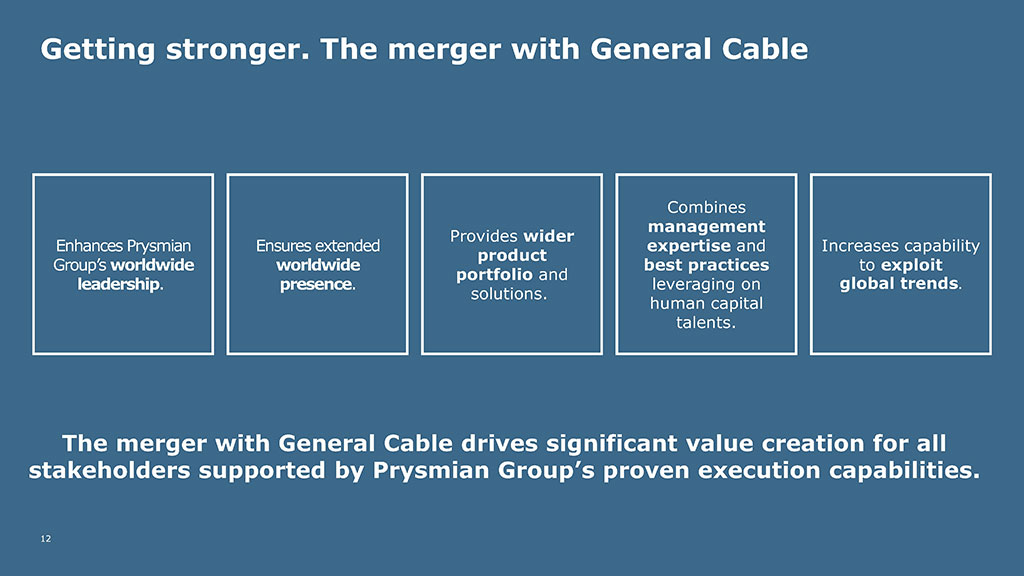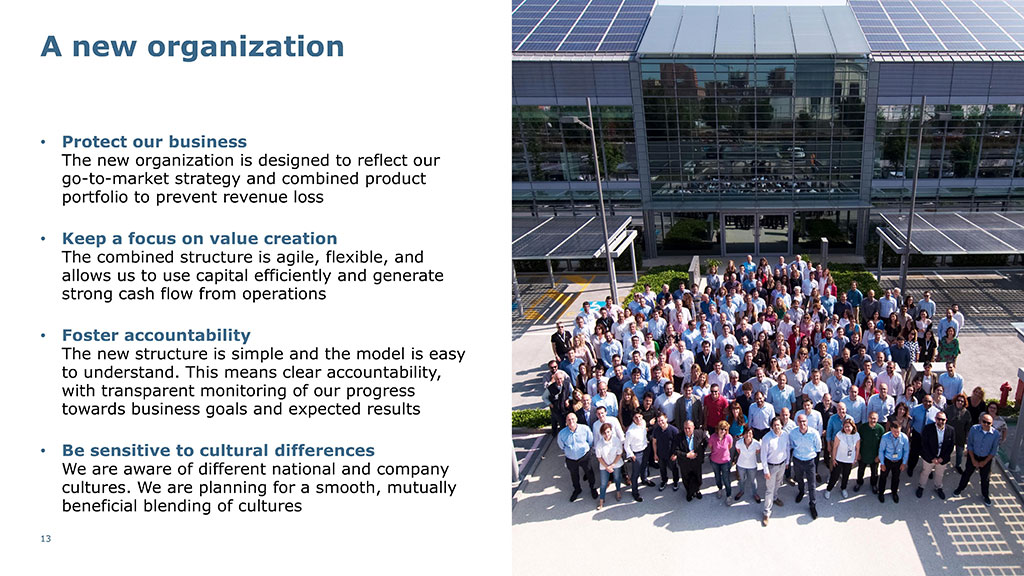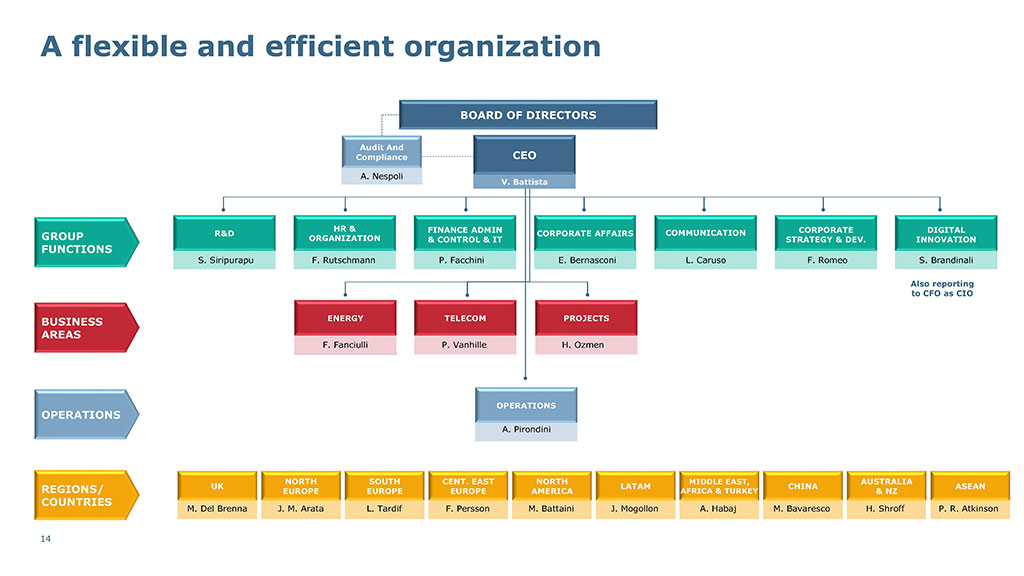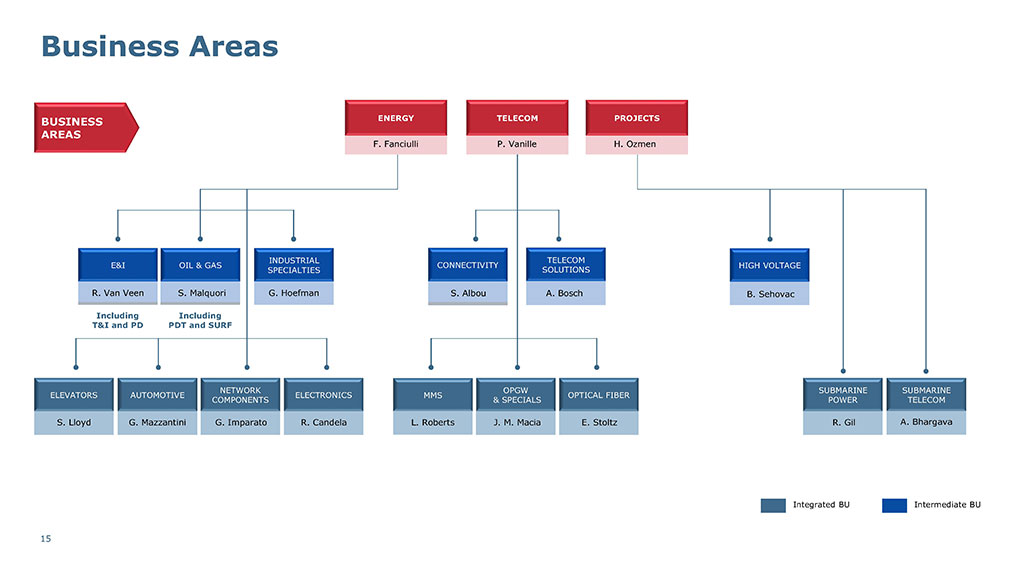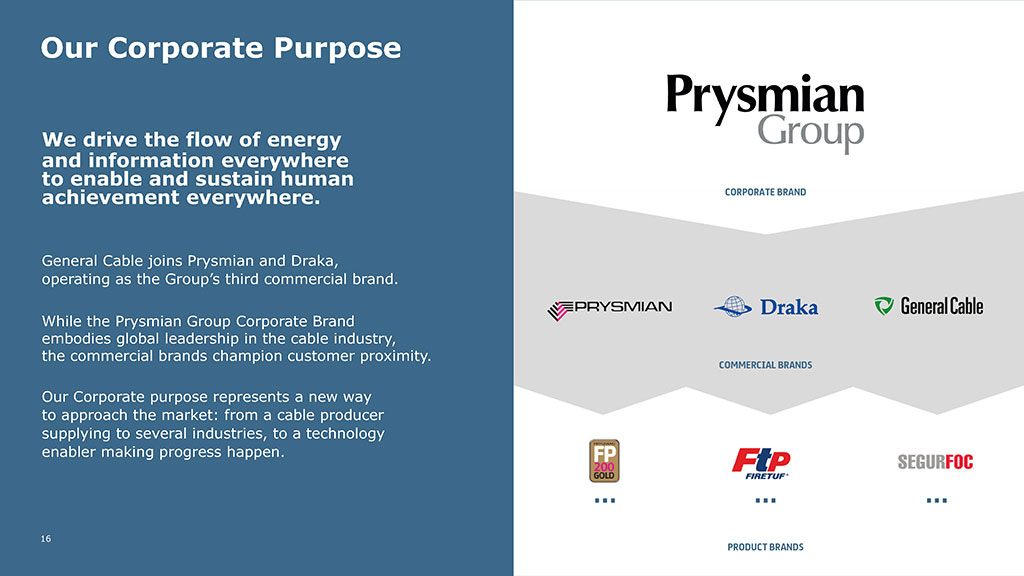Promoting a business model that integrates economic, social and environmental responsibility.
An integrated strategy
Sustainability plays a central role for Prysmian, which seeks to promote a responsible business model by encouraging the increased integration of sustainability within the strategy adopted. Consistent with the Corporate Vision and Values, which seek to promote 'the efficient, effective and sustainable supply of energy and information as the main driver for the development of communities”, the Group took important steps over the past years to further integrate sustainability matters within its business activities.
The critical success factors for the Prysmian Group are expressed through implementation of the following strategies:
- Ability to anticipate/satisfy customer needs
The technologies and processes used must be capable of developing products and solutions that anticipate and satisfy the needs of its customers. This is why the Group constantly strives to improve its competencies in the areas of Research and Development, human resource development and environmental sustainability.
- Balanced and sustainable growth
The ability to combine short and medium to long-term objectives, measurable not only by financial performance to meet shareholders' expected return on capital, but also by seeking healthy creation of value through the adoption of a system of governance and a business model that allows such results to be sustained in the long run.
- "Healthy" management and financial discipline
The Group aims to implement "healthy" and prudent principles in its financial management. In particular, it pays great attention to operating profitability and cash generation, with a particular focus on working capital management and the reduction of fixed costs and capital employed in order to maximise cash flow generation and the return on investment. The Group also aims to maintain adequate financial leverage for its strategy of organic and acquisition-led growth.
- Transparency, corporate governance and confidence of markets and investors
The Group pays particular attention to its relations with financial markets, shareholders and investors, also because of its public company status. Its focus in this sense is on ensuring precise maintenance of commitments and delivery of target results. Transparency and credibility are also expressed in a system of corporate governance based on compliance with the related rules and guidelines and the adoption of standards drawn from international best practices.
- Expansion and balanced growth
The Group's development strategy follows the dual track of growth in size and continuous improvement in profitability. When deciding in which business sectors and geographical areas to expand, the Group tends to give priority to the maintenance of adequate levels of profitability, even at the expense of growth in market share, whose preservation is nonetheless treated as vitally important, especially in high value-added market segments. The Group therefore pursues both organic growth of the business, based on a selective investment policy and development of commercial and production synergies, and acquisition-led growth. The search for growth opportunities, both organically and through acquisitions, is primarily focused on higher value-added high-tech businesses, such as High Voltage Underground and Submarine Cables and Systems, Cables for the Renewable Energy sector, Cables for the Extraction, Mining and Petrochemicals sector, Industrial Cables for infrastructure, as well as Optical Fibres and Optical Cables for the development of broadband networks. These businesses are linked to long-term investment programmes and so are less affected by economic cycles. In terms of geographical expansion, the Group mainly invests in countries and markets capable of ensuring high rates of growth and profitability. The role of Prysmian in the fragmented cable industry will continue to be that of an "aggregator", capable of serving as a leader in the current processes of rationalisation and consolidation.
- Rationalisation and efficiency of industrial and commercial processes
Prysmian has consolidated over time the ability to optimise its industrial processes, including by integrating and rationalising acquired companies. In line with its objectives, the Group is successfully pursuing synergies with Draka, on both the organizational and commercial fronts, involving integration of product ranges and enhancement of customer service.
Prysmian Group - Winds of change
Sustainability strategy
Sustainability plays a central role for the Prysmian Group, committed to promoting a business model that integrates economic, social and environmental responsibility in all aspects and activities of the Group.
Through a strategic approach that considers as key elements the listening and active involvement of all the Group's stakeholders, internal and external, constant attention to the evolution of the global and industry context, as well as the ability to think about the future with a view to responsibility towards the environment and society, Prysmian promotes a business model based on the concept of shared value.
The strength of this approach is the constant monitoring of the Group's sustainability performance along the entire value chain, with the aim not only of assessing performance ex post, but also of developing a proactive attitude in decision-making processes, able to anticipate and seize the new opportunities.
In order to guarantee a strong commitment both inside and outside the Group, in 2016 the Group's sustainability strategy was defined to include:
- Strategic priorities concerning sustainability;
- The related medium-long term targets (to 2020);
- A set of qualitative-quantitative performance indicators aimed at constantly monitoring the progress of the Group's sustainability;
- A set of actions that are updated annually based on the results achieved.
The sustainability strategy is the result of an analysis that considered the context both externally, through the identification of the main trends in the global and sector context, and internally, i.e., the priorities expressed by the Remuneration, Appointment and Sustainability Committee of the Board of Directors.
The mapping of sustainability priorities for Prysmian has therefore considered the global priorities for sustainable development defined by the 17 UN Sustainable Development Goals 2030 (SDGs), the requests coming from the main International Sustainability Indexes (Dow Jones Sustainability Index, FTSE4GOOD, CDP, Bloomberg ESG, etc.) and needs and expectations of the Group's stakeholders, mapped every year also through stakeholder engagement initiatives carried out by the Group.
The analysis of the above has allowed the Group to establish its strategic priorities, its targets and the actions necessary to achieve its defined sustainability objectives by 2020.
Prysmian has selected five SDGs to which it expects to be able to contribute the most, and translated them into a Sustainability Plan consisting of priorities, targets and actions that are consistent with our business and corporate values. With these assumptions, the Group has developed its own "Scorecard" as follows.
Discover our targets.
Sustainable Development Goals
The process makes reference to the Sustainable Development Goals established by the United Nations in September 2015. These goals accurately reflect the global sustainable development trends in which governments, for-profit and non-profit organisations will invest over the next 15 years.
We also take into consideration recommendations of the most relevant sustainability indexes, together with the priorities of our stakeholders.
